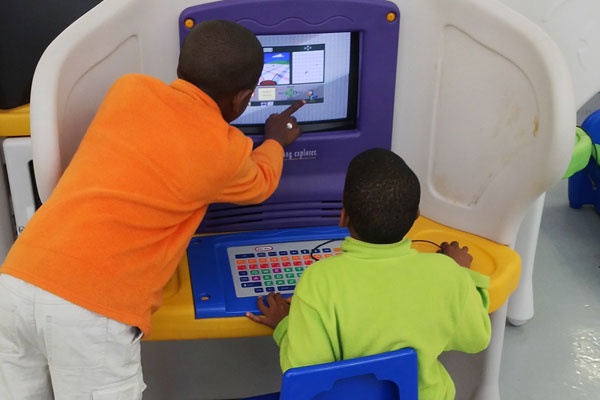
Covid-19 is threatening the sovereignty of states, organisations, communities, families and individuals.
It is disrupting and challenging governments, global economies, political discourse, public health, humanity and, rightfully so, our self-imposed ignorance.
Alarmingly, it has reminded us how we are all interconnected and interdependent for survival.
Suddenly, the government and others see and sincerely acknowledge the existence of the vulnerable people, some we have somehow chosen to make invisible. These include people who are not formally employed, the unemployed, the homeless, those dependent on substances and the underprivileged youth in our society.
I am writing this, triggered by an email I received from one of the large online international education providers advertising their scholarships for free online technology courses to 10 000 successful youths from 19 African countries.
Some of these courses are from the “Ivy League” institutions, such as Stanford and Harvard universities.
This African initiative aims to build future technology leaders and create an enabling tech start-up environment.
The action is indeed valuable, especially during the lockdown when young people – many of them unemployed – are at home.
The use of technology to advance science and humanity is glaringly important.
I thought I should share this information with young people from my township in Sobantu and on my social media platforms.
I started writing the Facebook post and copied information from this important email.
I have made it my job to play a connector role between opportunities like this and potential beneficiaries.
Suddenly, I had flashbacks from a radio interview I listened to while preparing dinner the previous night. The discussion involved a University of Johannesburg student leader raising concerns about the online learning platform set up by the university. The leader was asking the university to consider students who were at home and did not have access to digital tools, including data to access the platform.
The recollection reminded me of a book I read earlier this year by John Chambers, Connecting the dots, in which he cited education and internet access as an equaliser.
The flashbacks confronted my moral bank, which made me question my intention and unintended effects of sharing such information.
Will I be party in perpetuating inequality during a period filled with uncertainty, especially to a society facing socioeconomic challenges before Covid-19?
The pandemic is accelerating digital transformation in a country defined by inequality.
The lockdown elevates the status of internet access and qualifies it as a fundamental human right and an equaliser against discrimination brought by the lotteries of life.
Internet access enables equitable participation in education, access to services, information and various opportunities.
Equal access should take into account the intervention required to address poor network coverage affecting rural communities. Sharing opportunities is no longer a function of pressing share or forwarding emails. Instead it is sharing it with a plan to galvanise partnerships with public and private sector stakeholders to enable equal access to intended beneficiaries.
Network providers, although they were pushed by the Competition Commissioner to lower their data costs, must be commended for providing a daily allowance of free data and free access to public benefit organisations.
Responses to these challenges should go beyond enabling customers to communicate with others. These providers should offer free advertising for free online education programs. Operators should be able to partner and advertise such opportunities directly to their clients, to level the playing field for young people, and also zero-rate access to specific education platforms.
Each of us should ask ourselves how we can contribute to flattening inequality in our communities using resources at our disposal.
The world of work and education will not be the same after Covid-19, hence the need to build capabilities to lay a foundation for a digitally inclusive future, including the creation of new ecosystems to transform healthcare, education and government services.
Equitable access to quality education, employment and entrepreneurial opportunities for the youth are moral imperatives.
Peter Joseph in his book, The New Human Rights Movement: Reinventing the Economy to End Oppression, asserts that “losses of opportunity, social inclusion, material support and the cultural history of people enduring intersecting inequalities and deprivation all lead to personal and social destabilisation”.
Acknowledging our political history and the resultant structural violence demands that all stakeholders play their part in levelling the playing field to safeguard social cohesion, young people’s mental wellness, national security and finally because it is the right thing to do.
Dr Kubheka is co-founder and risk and ethics lead at Health IQ Consulting
 | ||||||||||||||||||||||||||
Get in touchCity Press | ||||||||||||||||||||||||||
| ||||||||||||||||||||||||||
| Rise above the clutter | Choose your news | City Press in your inbox | ||||||||||||||||||||||||||
| City Press is an agenda-setting South African news brand that publishes across platforms. Its flagship print edition is distributed on a Sunday. |




 Publications
Publications
 Partners
Partners








